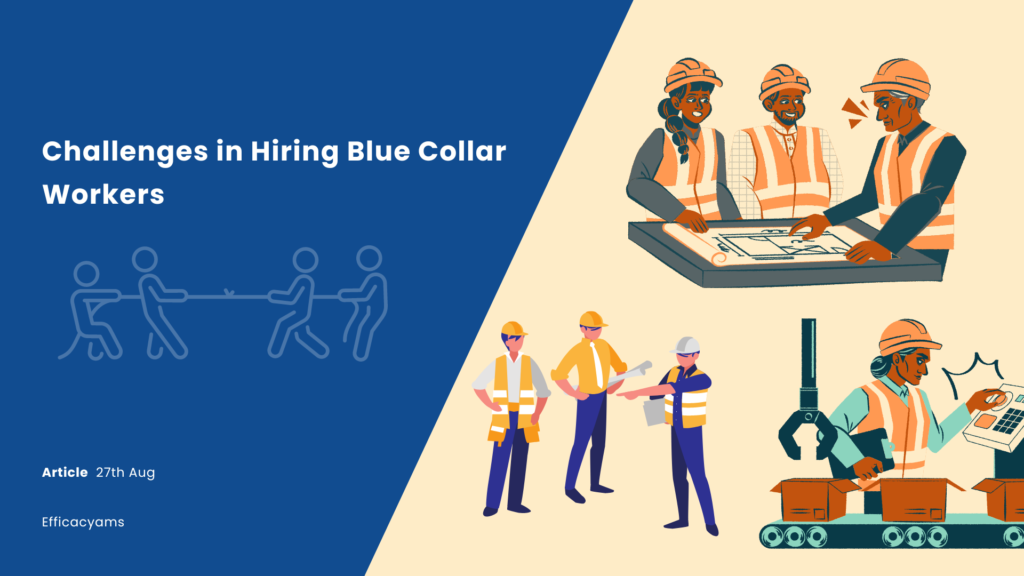
Challenges in hiring bule collar on Manufacturing company
Introduction
Hiring blue-collar workers has become increasingly challenging in today’s competitive job market. With industries like manufacturing, construction, and logistics experiencing significant growth, the demand for skilled workers is at an all-time high. However, attracting and retaining these essential workers is not without its hurdles. This article explores the key challenges faced by employers and offers insights into how to overcome them.

Labour Shortage
One of the most pressing challenges in hiring blue-collar workers is the ongoing labor shortage. Many industries are struggling to find qualified candidates due to a shrinking pool of workers. This shortage is partly driven by the aging workforce, with many experienced workers retiring, and fewer younger workers entering these fields.

Skill Gap
Another significant challenge is the skills gap. Many blue-collar jobs require specific technical skills or certifications, which can be hard to find. The rapid pace of technological advancements in industries like manufacturing has only widened this gap, making it difficult for employers to find workers who meet their requirements.

Post-Festival Manpower Shortage
A unique challenge that many manufacturing companies face is a significant drop in manpower after major festivals. During these times, workers often take extended leaves, leading to a sharp decrease in available labor. This shortage can severely disrupt the manufacturing production line, resulting in delays and decreased productivity. To compensate, companies often resort to increasing overtime (OT) for the remaining workers, which can lead to heightened pressure on both workers and management. This situation not only affects morale but also can result in burnout, further exacerbating retention issues.

Perception of Blue-Collar Jobs
The perception of blue-collar work has also contributed to the hiring challenges. Many young people view these jobs as less desirable compared to white-collar careers, often due to misconceptions about job stability, growth opportunities, and working conditions. This negative perception can deter potential candidates from pursuing a career in these fields.

Retention and Turnover
Even when employers successfully hire blue-collar workers, retaining them is another challenge. High turnover rates are common in these industries, often due to factors like job dissatisfaction, limited career advancement opportunities, and burnout. Employers must focus on creating a positive work environment, offering competitive wages, and providing opportunities for skill development to improve retention.
Conclusion
Hiring blue-collar workers is a complex challenge that requires a multifaceted approach. By addressing the labor shortage, closing the skills gap, managing post-festival manpower shortages, competing effectively with other industries, changing perceptions, and improving retention strategies, employers can better attract and retain the talent they need.
At efficacyams, we specialize in helping you hire blue-collar candidates tailored to your specific needs. We also excel in reducing manpower shortages and maintaining a buffer to support your operations, ensuring that your production line runs smoothly even during challenging times.

